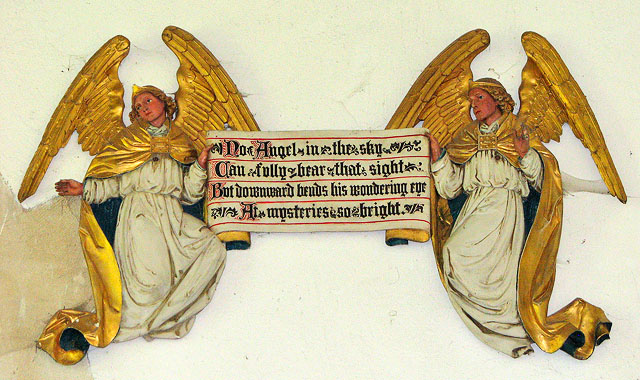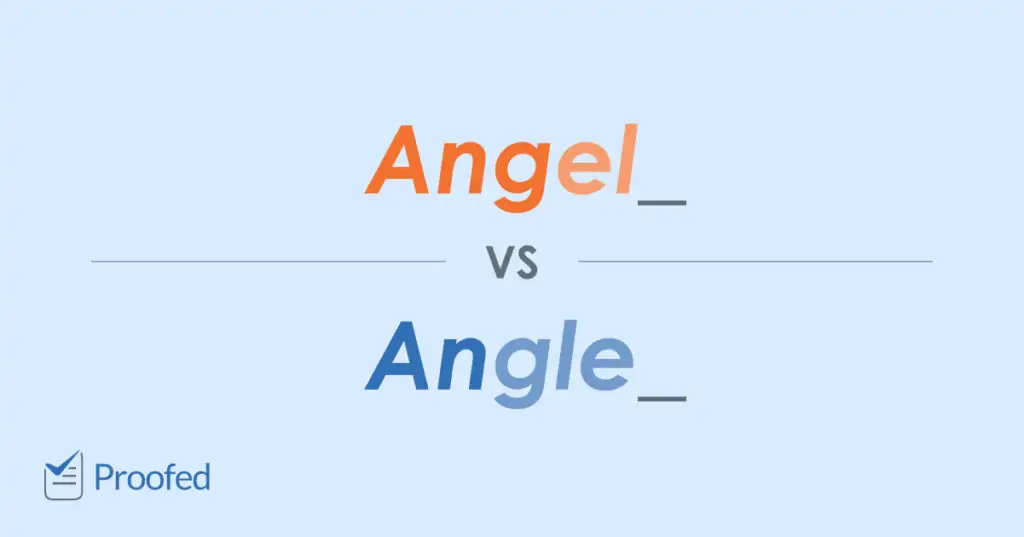Do you have a guardian angle watching over you? If so, is it acute or obtuse? Oh, wait. We may have confused the words ‘angel’ and ‘angle’ there. It’s an easy mistake, as you can’t rely on divine intervention to ensure perfect spelling. But you can check out our guide to what these terms mean.
Angel (Guardian Spirit or Divine Messenger)
‘Angel’ is a noun that refers to a spiritual being or a messenger from God:
He was visited by an angel from the Lord.
We often picture angels as human-like figures in robes with wings, haloes and harps. But there is one part of the Bible that describes them as having ‘six wings . . . covered all over with eyes, inside and out’, which is a little more horrifying than the version you’ll see in a church.

(Photo: Evelyn Simak)
Sometimes, we also use ‘angel’ to suggest someone is morally good:
She’s such a well-behaved little angel!
This doesn’t mean that the person so described has scary, eye-covered wings, though. In this case, it simply suggests angelic behaviour
Angle (Space Between Intersecting Lines)
Used as a noun, an ‘angle’ is a space between intersecting lines or surfaces:
The internal angles in a triangle always add up to 180 degrees.
Find this useful?
Subscribe to our newsletter and get writing tips from our editors straight to your inbox.
We can also use ‘angle’ as a verb meaning ‘position at an angle or incline’:
She angled her visor to protect her eyes from the sun.
‘Angle’ has some secondary meanings, too. As a noun, for example, it can also mean ‘point of view or approach’. And as a verb, it can mean ‘design for a particular audience’. For instance:
We need a new angle if want to attract more viewers.
We have angled the new edition at younger readers.
Finally, ‘angling’ is also a word for fishing with hooks.
Summary: Angel or Angle?
These words may contain the same letters, but they are very distinct in meaning (nor do they sound the same when spoken):
- Angel is a noun that refers to a guardian spirit or divine messenger.
- Angle is usually a noun that refers to a space between two intersecting lines. However, it is also often a verb meaning ‘incline at an angle’.
If you struggle to remember which is which, keep in mind that the ‘-gel’ in ‘angel’ is pronounced the same as in ‘hair gel’ (you could even imagine an angel gelling its hair, if that helps). And to guard against typos, we recommend having your work proofread by a professional.



